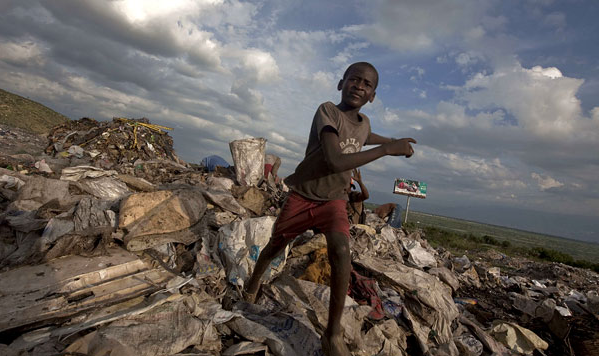
In 2009, filmmaker Jeremy Seifert released Dive!, a documentary that explores America’s ongoing problem with wasting food. Following the lives of Seifert and his dumpster diving friends, we’re taken to the back alleys of Los Angeles supermarkets in which tons of edible food are left for garbage disposal. Cited in the documentary, 96 billion pounds of food are thrown away in America, which means that we’re feeding our landfills as much as we consume. But more importantly, as families remain hungry and struggling in America, why isn’t this food given to people who need it? Or why aren’t we offering more support to countries, such as Somalia, which faces another famine?
These questions are complicated, as the reality of irresponsible capitalism reigns over America’s food system. Waste is normalized. People remain hungry. Socioeconomic circumstances limit access to fresh food. But really, there’s no reason for edible fruit, bread, vegetables, and meat to sit in a dumpster when it could’ve been given to Americans and international populations attempting to make ends meet.
Frankly, the solution to food waste will not stem from a free market capitalist system. It calls for government encouragement, if not outright intervention, since eliminating waste and feeding the hungry is rarely profitable and thus, attractive. Perhaps, the federal government should offer additional corporate tax benefits for supermarket chains that collaborate with local shelters to regularly distribute would-be-wasted food. Or maybe there should be stronger federal regulations on the amount of food a supermarket can throw to the dumpster, which would cut back on landfill operations and strengthen the environment.

But supermarkets are not the only entities perpetuating America’s culture of waste, as restaurants also throw out edible meals when customer demand falls short. There are bags of left over food thrown behind restaurants daily, left for local animals, Seifert-like dumpster divers, or landfill waste. If restaurant workers don’t take home extra meals, that food will likely never see a human mouth and thus, contribute to America’s waste problem.
As individual responsibility also plays a role, American families are known for purchasing more food than they need or eat. Following the mantra more is better, popular supermarkets, like BJ’s or Sam’s Club, thrive on customers that don’t necessarily need six steaks in one pack or a huge box of fresh fruit. Open the average American family’s refrigerator; and something is rotting. Too much food ends up on neighborhood curbsides, as living in a country of abundance has become a simultaneous curse. Since there aren’t popular systems for food donations to decrease waste, it’s left up to the average, unconcerned American to figure out a way to get rid of soon-to-be rotten food. Clearly, individual responsibility will not pave the way for sustainable, large-impact change. The country needs a stronger solution that collectively calls upon the people, small businesses, and big corporations.

Individual-based and small business fresh food donations would best operate within national borders, but big food corporations certainly could play a role in helping international communities. If Shoprite, Pathmark, or Whole Foods would set aside a larger percentage of existing food orders to go to struggling countries, it would decrease waste and help more people in need. It’s unacceptable for children and families to starve while supermarket dumpsters bulge in could’ve-been-salvageable food. In 2011, there shouldn’t be famine anywhere, as contemporary transportation allows for food to reach any country in less than 48 hours. If Somalia teaches us anything, it’s that humanity’s greed and nonchalance toward waste could starve out populations. When will enough be enough?






